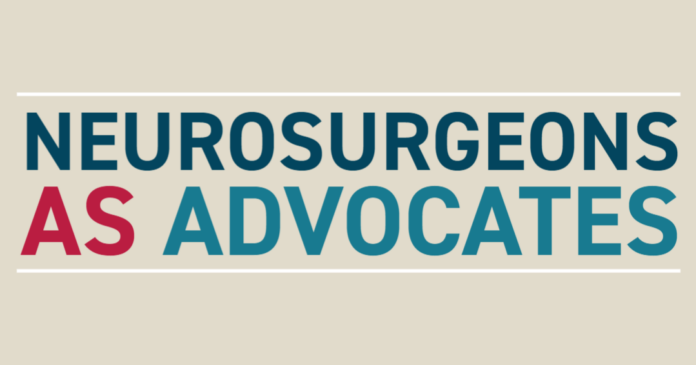I first met R.P, a 61-year-old woman, in the fall of 2022. She had been referred for treatment of severe lumbar stenosis and spondylosis. She presented with a progressive several-year history of neurogenic claudication. Prior to meeting with me, she had pursued standard medical treatments, including physical therapy, oral medications and steroid injections. Despite this, her symptoms continued unabated, affecting her ability to ambulate and her quality of life. As such, a plan was made for additional radiographic studies and surgical intervention. However, at the next appointment, R.P. endorsed new hand weakness and gait ataxia. Bulbar findings and neurologic workup resulted in a diagnosis of presumed amyotrophic lateral sclerosis (ALS). At this point, a number of health care professionals were involved in this patient’s care, including the neurologist, internist, peri-operative anesthesia team and social worker.
As we readied R.P. for surgical treatment, I fielded several calls from the other medical professionals involved in her care. Specifically, my colleagues questioned the wisdom of subjecting the patient to an operation given her concomitant diagnosis of ALS; in addition, many questioned the patient’s grasp of her two diagnoses, including the implications of the more serious diagnosis of ALS. At this point, I met with R.P. again, discussing in detail her two diagnoses, their contribution to her symptomatology and the expected outcome of surgical treatment. As such, she was adamant in her desire to pursue surgical treatment, stating, “If this operation relieves the pain in my legs and allows me to go for walks, then I want to go ahead with it even if I have ALS.”
Armed with this, I now advocated for R.P. with the anesthesia and peri-operative team; I insisted that we proceed with surgical treatment sooner rather than later. I am happy to report that R.P.’s post-operative course was unremarkable; in addition, she noted resolution of her lower extremity pain. At her six-week postoperative visit, she was beaming at me over the Zoom screen; the operation was a success!
As neurosurgeons, we are confronted by conditions affecting the quality and quantity of life; it is a privilege to contemplate these questions as a matter of routine. Often, the decision making requires us to take a broader view of the bigger picture versus just focusing on the smaller neurosurgical diagnosis and picture. Nevertheless, only we are aware of the difficulties caused by neurosurgical diagnoses and their effect on a person’s life. It is our privilege and to advocate for those whom we take care of.
The American Association of Neurological Surgeons (AANS) Annual Scientific Meeting, April 21-24, 2023, being held in Los Angeles, will highlight “Neurosurgeons as Advocates.” The AANS Neurosurgeon, beginning in April, will echo this theme, demonstrating the myriad of ways in which neurosurgeons advocate for the specialty, the patients and its practitioners. Under the leadership of AANS President Dr. Ann Stroink, this meeting will feature the new Distinguished Advocate Award (https://aansneurosurgeon.org/feature/troy-m-tippett-md-first-recipient-of-the-new-aans-distinguished-advocate-award/) and Charles L. Plante Lectureship (https://aansneurosurgeon.org/feature/aans-establishes-new-charles-l-plante-lectureship/). In addition, the AANS Neurosurgeon features the voices of AANS/CNS section chairs as they highlight each group’s advocacy efforts. (https://aansneurosurgeon.org/feature/advancing-neurosurgery-oncology-through-advocacy-over-the-years/) As the socioeconomic publication of the AANS, the AANS Neurosurgeon is the forum for neurosurgeons to discuss all matters related to the practice of neurosurgery: professional, financial, legal, technical and personal. AANS Neurosurgeon welcomes all and wants to hear you. Please reach out to us at [email protected].








